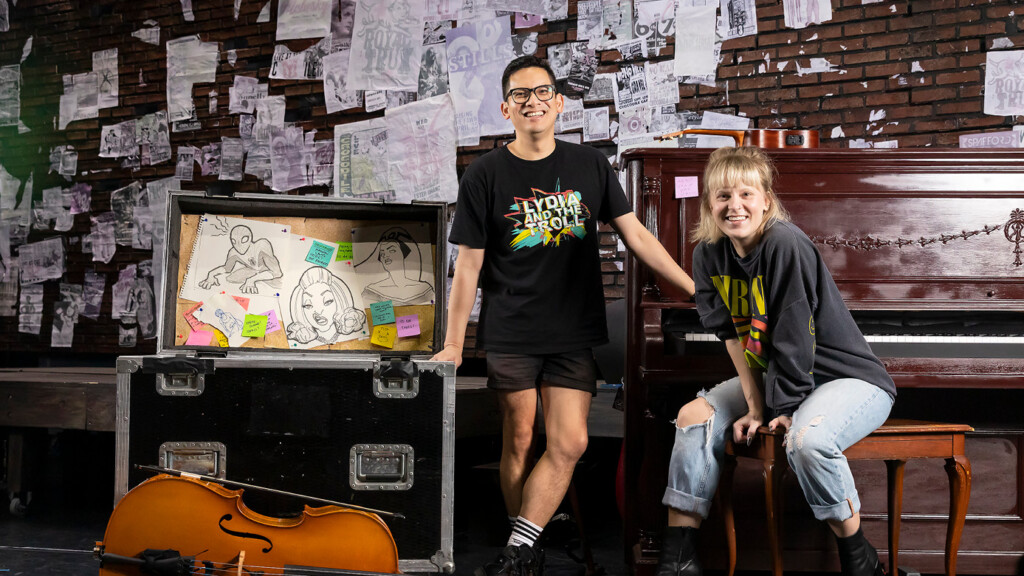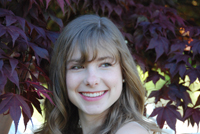Page 73 • (743 results in 0.394 seconds)
-
Psychology and Developmental Disabilities Research. Her psychiatric experience includes residency at Children’s Hospital and Medical Center in Seattle, and program directors positions at the Alaska Psychiatric Institute, and the Washington State Child Study & Treatment Center, as well as serving as the Coordinator of Children’s Mental Health for the State of Alaska. For the past 16 years, Dr. Galbreath has has used her training and experience in her roles as a school psychologist, educational
-

Studies, and Sport and Exercise Psychology and a Peace Corp Prep certificate Hometown: Olympia, WA Selected accomplishments: ASPLU Vice President; co-founder, Interfaith Games at PLU; Certified Yoga instructor at PLU; student representative on numerous committees, including Academic Affairs (Board of Regents), Campus Life, Counseling Center Director Search, Parking Appeals, Parking, Sustainability, Student Sustainability; three-year student-athlete Post-graduation plans: Teaching English to 3-6 year
-

classmates who expected to land the leading roles. “They were looking at a couple students who were older than us,” deLohr says. “And then we came in and just kind of stole those roles.”I Dreamed A DreamKiki deLohr sings “Terrible Ride” from Lizard Boy. Though both had starred in high school musicals, neither Huertas nor deLohr enrolled at PLU intending to major in theater. DeLohr planned to study psychology and Huertas was a music performance major specializing in the cello. After meeting in Acting 101
-
) tells the story of those five guys reaching the age of forty and starting to gather at least once a year, usually for golf and always for reconnecting and reminiscing. In addition to their remarkable three-plus decades of togetherness, despite several thousand miles of separation in three directions, they were a notable group: Doug Leeland, an MD; Tom Lorentzsen, a doctor of optometry; Al Hedman, a PhD in psychology; Tim Sherry, with an MA in English from the University of Chicago and an impressive
-
of action when constructing a biome that can flourish and prosper together.I’d like to thank my capstone professors, Dr. Adela Ramos and Dr. Rose McKenney for their guidance and also my mentors Dr. Michael Behrens and Dr. Troy Storfjell for their wisdom. 3:25pm, Into the Outdoors: Educational and Developmental Benefits of Outdoor Classrooms Juliana Rendler Pairing the disciplines of developmental psychology and education to analyze the potential benefits of outdoor educational experiences and
-

one day I might become a nurse educator. However, prior to further exploring the option of graduate studies I would like to gain experience working in the field. Kelsey Yonce – Bachelor of Arts in psychology, minor in sociology Why PLU? To be completely honest, I chose PLU because of its proximity to my high school boyfriend who was attending UPS. Like most high school relationships, that one didn’t last past graduation, so it’s definitely not a method I recommend for choosing a university! Kelsy
-
stressed evolutionary continuity in the emergence of human intelligence. Increasingly, researchers are focusing on understanding animal minds and thought as distinct from human thought. As Marc D. Hauser, professor of psychology and neuroscience at Harvard, writes in Wild Minds: What Animals Really Think (Henry Holt 2000), “We share the planet with thinking animals . . . . Although the human mind leaves a characteristically different imprint on the planet, we are certainly not alone in this process
-
of self, rather than a dreamed-of salary. In short, discovery of the authentic I inspires professional creativity, and compassionate, reflective citizenship.Creating an environment that promotes lifelong honing of the I is what liberal education is all about. As such, the undergraduate “liberal arts” skills that students learn, be they history, biology, a foreign language, or psychology, should in praxis be a mere framework through which an attentive teacher lays a path for students to discover
-
) Lifespan Developmental Psychology (4) Pre-Licensure Coursework NURS 305: Patho/Pharm I (4) NURS 306: Foundations of Care Delivery/Health Promotion (3) NURS 307: Health & Physical Assessment (3) NURS 308: Clinical Practicum I (3) NURS 309: Professional Foundations & Principles of Leadership (2) NURS 310: Scholarly Writing Concepts (1) NURS 311: Patho/Pharm II (2) NURS 314: Care of Chronic Conditions (3) NURS 315: Psych/Mental Health (2) NURS 316: Clinical Practicum II (5) NURS 401: Care of Complex
-
awarded two degrees within the same discipline. (Example, B.A. and B.S. in Psychology). Second Bachelor’s Degree Earned – Returning Students Students cannot return to have additional majors or minors posted to their records once they graduate unless they complete an entirely new degree. Students who return to PLU to earn a second bachelor’s degree after earning a first bachelor’s degree or those who earned their first degree at another institution must meet the following requirements: Current Catalog
Do you have any feedback for us? If so, feel free to use our Feedback Form.


